
Do you have what you need to make your garden grow?


Garden Center
Store Hours
Mon-Sat:
6:00am - 9:00pm
Sun:
7:00am - 8:00pm
Curbside:
09:00am - 6:00pm
Location
Popular at Your Garden Center
Spring Garden Supplies
Shop Trending Spring Plants
Garden Project Calculators
;Resize=(703,395.44))
Grass Seed Calculator
When you're ready to seed your lawn, our calculator helps you estimate the amount of grass seed you'll need to get the job done.
;Resize=(703,395.44))
Mulch Calculator
Enter your preferred material, the square footage and mulch depth of the coverage space for accurate results.
;Resize=(703,395.44))
Fencing Calculator
We'll calculate the amount of fencing you should purchase based on your property needs.
Shop Outdoor and Garden Brands
Frequently Asked Questions About Gardening
How do I check my USDA planting zone?
Check the USDA planting zone map, as planting zones have shifted over the years. Planting zones with higher numbers can plant earlier in the year. Choose plants that are meant for your zone and increase your odds of successful gardening.
When can I plant seeds outside?
If the soil is pliable and warm, consider planting your fruit, flower, or veggie seeds directly into your garden. This is called the "direct sow" method. Plant after the threat of frost is gone for the season, as sprouts and seedlings can't weather those conditions. You can also start your seeds indoors if you'd like. Consult your seed packet for when and how to sow seeds.
Do you carry organic plants and seeds?
We offer many organic gardening options, including organic fruit seeds and veggie seeds, as well as organic flower and herb seeds that are subject to availability. We also carry the organic fertilizer to feed your plants and the organic soil to plant them in.
Should I harden off my seedlings before planting them outside?
Yes, for best results, if you raised plants indoors from seeds in your own plant nursery, harden them first before you transplant them. Hardening is the process of getting them used to the great outdoors and sun, rain, and temperature swings. It slows their growth until they're strong and ready to take off during a spring warm front. Hardening also makes your plants more resilient to a sudden cold snap. Speak to a garden center associate or read your seed packets for more info on caring for your tender seedlings.
How do I plant a transplant or baby plant?
Squeeze the plastic around the plant to loosen the soil. Carefully coax the plug of dirt with the plant into your palm, then place it into the hole you dug for it. Make sure the top of your transplant's soil is even with the garden soil, and carefully press the earth into place. Avoid mounding a volcano of dirt around your plant, and don't pack the ground too tightly. Your plant baby needs to breathe.
What are seed tapes?
If you want more guidance in planting or are dealing with extremely tiny seeds, consider seed tapes. They're biodegradable pieces of paper with tiny seeds affixed at regular intervals. Just bury the tape and water as directed. If all goes well, you'll have perfectly spaced sprouts pop up soon.
Garden Project Ideas
The Home Depot Garden Center at Jantzen Beach
The Home Depot's Spring Black Friday Sale
Enjoy some of the best savings of the season with our Spring Black Friday deals. Spruce up the great outdoors with patio furniture to fit any decor style. Spring cleaning applies both indoors and outdoors, so upgrade your lawn and garden with gorgeous flowers. Don't forget to check out our outdoor power equipment, too. Save on everything you need during our spring sale, which runs only from April 3rd through 16th. Don't miss out on these deals.
Celebrate Springtime Gardening
It's time to start thinking of spring. Clean the shed and sweep out the gazebo to prepare for warmer temperatures, sprouts poking out of the ground, and fragrant breezes. Planting seeds indoors near a sunny window means you'll be ready to transplant young veggie plants and spring annuals when the frosts are through and the ground thaws. You might even want to sow seeds directly into the earth. What better way to start than by exploring your favorite local plant nursery?
Plant Hardiness Zones Explained
The first thing to know when planting spring flowers, vegetables, and other seeds is your planting zone. Every location in the U.S. and its territories is sorted into blocks by climate. Find your zone on the USDA zone map and learn when to plant seeds.
For example, you could transplant bell peppers outdoors in mid-March in Zone 10, but not until the end of May in Zone 4. The plants that'll thrive in your area are in your zone — plus all the zones numbered less than that. In other words, a Zone 5 garden can support plants listed as Zones 1–5. The timeframe to direct sow outdoors in your garden is often around a month later than the indoor start date. Read your seed packet for details. If you start them later than recommended, it's not ideal, but it will even out as time passes.
Gardening in Your Growing Zone
In the Pacific Northwest, Idaho, and Montana, there’s a wide range of climates and growing zones. Most of Oregon, Washington, and Idaho are Zones 6–9, with the higher peaks coming in as Zones 4–5. Montana is in Zone 5 on the western end, but the mountainous regions are mostly Zone 4, with the tallest mountains as Zone 3.
The differences in planting zones means your seed sowing times will vary. The coastal regions in Zones 8 and 9 can start many seeds indoors in mid-January. Colder regions in 6–8 should wait a little longer to plant, and all these zones need to wait an additional month before planting seeds outdoors rather than indoors. Mountainous regions in Zones 3 to 5 will have the shortest growing season, with seed starters going in later in the spring. Although the weather may vary, waiting until the frost has passed will give your seeds the best chance at a hearty and healthy life.
Popular veggies of all kinds, including cucumbers and tomatoes, are fine with an early spring or late winter start indoors under the grow lights. Your spring flower seed choices, whether they're perennials or annuals, can also often get an indoor beginning.
Start Seeds Indoors
Grow your garden from seeds by starting them indoors in your own plant nursery. We've got all the seed starter supplies you'll need. Make sure you have a warm and sunny spot that gets at least 12 hours of light and good soil, a spray bottle of water, and patience. Then you have everything you need to try growing seeds. Early spring light isn't usually strong enough, so we recommend extra lighting to keep those seeds warm enough to germinate.
Measure your finger to use it as a ruler. In general, you'll plant 3–5 seeds, then press them into the soil to the depth you need with your finger. Mark where you planted the seeds with a plant tag or toothpick. Otherwise, it'll be a surprise when the sprouts push out of the soil.
Sprouts
When your seeds have sprouted but aren't ready to go outside yet, you can still prepare them for outdoor life. These inch-tall micro-seedlings are fragile but resilient. Seedlings certainly don't get all this pampering in nature, so they can handle more than you think. However, don't go overboard, as your sprouts are still babies. You can even use an oscillating fan on low to mimic the wind and strengthen their stems.
Harden Your Seedlings
Remember to harden your seedlings for strong plants. On days that are warmer than 45–50 degrees, take your pots or trays of seedlings outside to slowly warm in the shade for two hours, but bring them inside at night. A cloudy day will also work well. Gradually add an extra hour or two each day, incorporating a little sun to get your plants used to it. After a week or more of this, you can leave them out overnight if the temps stay above 50 degrees. Cover your plants if they're in the ground when a late-season frost sneaks back in.
Transplant Young Plants Into Their New Homes
Place your transplants in the ground, then give them a generous drink without overwatering. Surround them with mulch, marking where the plant is with a tag or stick so you can easily find it among the grass clippings, old leaves, or straw. If your yard is regularly visited by deer or rodents, consider putting up chicken wire or other protective measures so your plants and veggies are less likely to get eaten before they thrive.
Protect Your Garden With Mulch
Finish it all off with compost and mulch. Mulch keeps your soil moist and controls weeds. Compost enriches the soil so your garden can grow even better. It may help foster stronger and larger plants that bear more flowers and fruit. Compost and mulch can be DIY creations, but you can also purchase them in-store. The next time you're looking for "mulch near me," stop by the Garden Center to get the perfect amount.
Greet the Spring
Don't miss a minute of growing season. Prepare to fertilize your lawn, plan your garden and landscaping, and browse The Home Depot nursery to find inspiration on what to plant when the weather warms. For those without lawns, consider adding an outdoor rug, artificial grass, or a pellet grill to your balcony or patio. Shop for the seeds, fertilizer, and soil you need in the aisles of your Jantzen Beach Garden Center, online, or on our mobile app. Let's get growing together.
Nearby Stores
Find Another Store
8601 Ne Andresen Rd
Vancouver, WA 98665
6.51 mi
Mon-Sat: 6:00am - 10:00pm
Sun: 7:00am - 8:00pm
11633 Ne Glenn Widing Drive
Portland, OR 97220
7.39 mi
Mon-Sat: 6:00am - 10:00pm
Sun: 7:00am - 8:00pm
13700 Nw Science Pk Dr
Portland, OR 97229
8.77 mi
Mon-Sat: 6:00am - 10:00pm
Sun: 7:00am - 8:00pm
;Resize=(703,395.44))
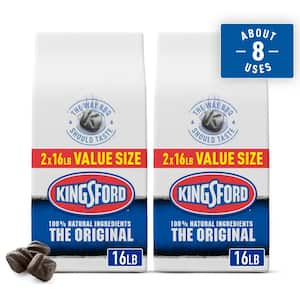
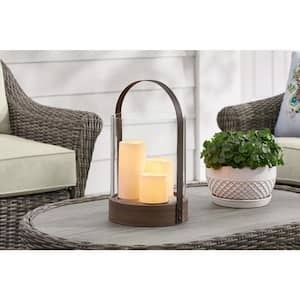
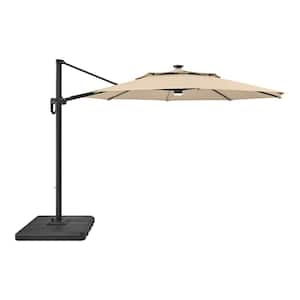
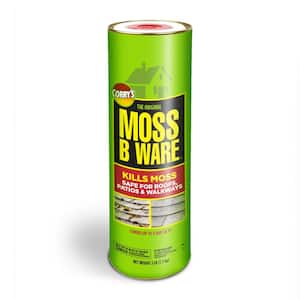
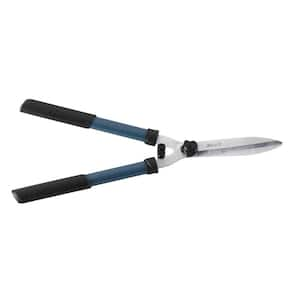
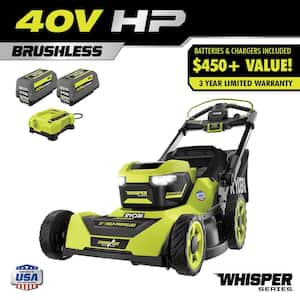
)
)
;Resize=(300,300))
)
)
/2023_P2_Rain_Barrels_Product%20Image%20(square).jpg?im=Resize=(300,300))
)
;Resize=(300,300))
)
;Resize=(300,300))
;Resize=(300,300))
;Resize=(300,300))
)
;Resize=(300,300))
/12_SOIL_B_0420_Social%20media%20(square).jpg?im=Resize=(300,300))
;Resize=(300,300))
;Resize=(300,300))
)
)
)
;Resize=(300,300))
;Resize=(300,300))
;Resize=(300,300))
;Resize=(300,300))
;Resize=(300,300))
)
;Resize=(300,300))
/18Patio_Camden_Seagrass_5pcSeating_Planters_302468736_DTL3_L_Social%20media%20(square).jpg?im=Resize=(300,300))
;Resize=(300,300))
;Resize=(300,300))
;Resize=(300,300))
;Resize=(300,300))
;Resize=(300,300))
)
)
)
.jpeg?im=Crop,rect=(363.69230769230774,1.2307692307692308,958.7692307692308,958.7692307692308);Resize=(300,300))
;Resize=(300,300))
)
)
)
;Resize=(300,300))
)
;Resize=(300,300))
;Resize=(300,300))
)
)
;Resize=(300,300))
;Resize=(300,300))
;Resize=(300,300))
)
)
/Capello_Spring_Mum_10in_Social%20media%20(square).jpg?im=Resize=(300,300))
;Resize=(300,300))
;Resize=(300,300))
)
)
;Resize=(300,300))
;Resize=(300,300))
)
)
)
)
)
;Resize=(300,300))
;Resize=(300,300))
;Resize=(300,300))
)











































